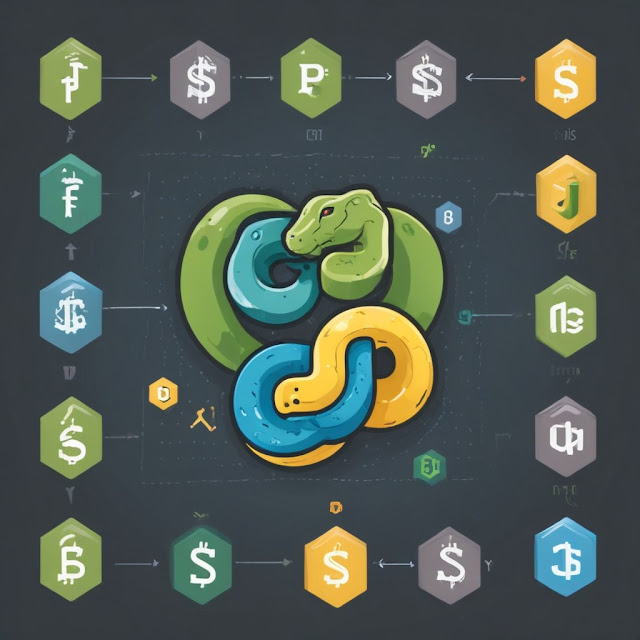The programming language you should learn depends on your interests, career goals, and the type of software development you want to pursue. Here are a few popular programming languages and their common applications:
Python: Known for its simplicity and readability, Python is widely used in web development, data analysis, artificial intelligence, and scientific computing.
JavaScript: Primarily used for web development, JavaScript is essential for building interactive and dynamic web applications. It's also used in server-side development (Node.js) and mobile app development (React Native).
Java: Java is used for building enterprise-scale applications, Android mobile apps, and large-scale systems. It's also commonly used in backend development and enterprise software.
C++: Often used in system software, game development, and performance-critical applications due to its high performance and efficiency.
C#: Developed by Microsoft, C# is commonly used for building Windows applications, game development with Unity, and enterprise software.
Swift: If you're interested in iOS and macOS app development, Swift is the primary language for building applications on Apple platforms.
Go (Golang): Known for its simplicity and efficiency, Go is used for building scalable and concurrent systems, cloud services, and network applications.
Ultimately, the best language to learn is the one that aligns with your career goals and interests. If you're new to programming, Python is often recommended as a beginner-friendly language with a wide range of applications. As you gain experience and explore different domains of software development, you can expand your skills to include other languages based on your specific interests.
The easiest programming language is subjective and depends on individual preferences and learning styles. Some popular programming languages known for their simplicity and ease of learning include Python, JavaScript, and Ruby. Each of these languages has a straightforward syntax and a large community of developers, making it easier to find resources and support for learning. Ultimately, the "easiest" programming language is the one that best aligns with your goals and interests.
The programming language with the biggest community is JavaScript. JavaScript is widely used for web development, and its community is one of the largest and most active in the programming world. The language has a vast ecosystem of libraries, frameworks, and tools, and it is supported by a large number of developers, open-source contributors, and companies. The active community provides extensive resources, tutorials, forums, and support for JavaScript developers, making it a popular choice for building web applications, mobile apps, and even server-side applications using Node.js.
Node.js and JavaScript are related, but they serve different purposes and have different environments:
JavaScript:
- JavaScript is a programming language that is primarily used for client-side web development. It runs in web browsers and is used to create interactive and dynamic user interfaces on web pages.
- JavaScript is not limited to web development and can also be used for server-side development, mobile app development, and even desktop application development using frameworks like Electron.
Node.js:
- Node.js is a runtime environment that allows you to run JavaScript on the server-side. It is built on the V8 JavaScript engine (the same engine that powers Google Chrome) and provides a set of APIs for building server-side applications.
- Node.js enables developers to use JavaScript for backend development, handling server-side logic, file operations, networking, and more. It allows for non-blocking, event-driven I/O, making it well-suited for building scalable and high-performance applications.
In summary, JavaScript is a programming language used for client-side and server-side development, while Node.js is a runtime environment that allows JavaScript to be executed on the server-side.
The choice between learning JavaScript or Node.js depends on your specific goals and interests. Here's a brief overview to help you make an informed decision:
JavaScript:
- JavaScript is a versatile programming language used for web development, front-end, and back-end development.
- Learning JavaScript is essential for building interactive and dynamic web applications.
- If you're interested in front-end development, JavaScript is a must-learn language for working with HTML and CSS to create user interfaces.
Node.js:
- Node.js is a runtime environment that allows you to run JavaScript on the server-side.
- Learning Node.js is beneficial for back-end development, server-side scripting, and building scalable network applications.
- If you're interested in server-side development, building APIs, or working with databases, learning Node.js can be valuable.
Ultimately, if you're interested in full-stack development, it's beneficial to learn both JavaScript and Node.js. However, if you have a specific focus on front-end or back-end development, you can prioritize learning JavaScript for front-end and Node.js for back-end. Both JavaScript and Node.js are valuable skills in the web development ecosystem.
.png)
.jpeg)


No comments:
Post a Comment